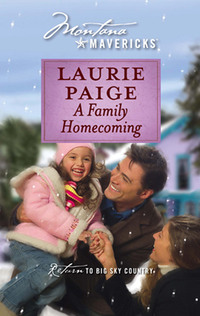
Полная версия
The Other Side Of Paradise
Mary’s chest lifted in indignation at the implied criticism. She quelled the emotion and the urge to storm in and inform her boss that she was a damn good worker. People new to an area were often viewed with suspicion, and she couldn’t afford the luxury of hurt feelings.
“Well,” he continued as if explaining his remark, “she’s as skinny as a birch twig. The first winter wind might blow her away. I don’t know if she has the strength to do the job.” He chuckled sardonically. “Yeah, I know, beggars can’t be choosers. Thanks a lot, cuz.”
Before Mary could move, he hung up and walked into the hallway, now alight with the soft glow of two wall sconces.
Their eyes met.
“Sorry. I didn’t know you were out here,” he said.
She shrugged. “Lots of men don’t think women can do the job. We have to prove ourselves each time. It comes with the territory.” She spoke carefully, determined not to let him rattle her.
“You’ll have to help me with the hunting parties this fall. We’ll be setting up blinds, maybe wading through snow up to our boot tops.” There was a warning in his tone.
“I’m not afraid of hard work.”
Only of people, but she didn’t say that. She wasn’t really afraid of anyone, but she’d learned to be wary.
“Good, ’cause we have plenty of it around here.” He started toward the kitchen area.
She went up two steps.
“Your cornbread was a hit with the men,” he added.
Glancing over her shoulder, she nodded.
“And the soup. What did you do to it?”
“Added some spices.”
His smile was sudden and unexpected. “You’ll have to show me what and how much. My attempts at cooking are unreliable, as you observed earlier.”
Mary experienced a flutter in the pit of her stomach at the rueful humor evident in his eyes. “Sure,” she said and moved up another step.
His next words stopped her cold. “You have a very precise way of speaking,” he murmured, looking at her in a quizzical manner as if trying to figure out what made her tick.
She hesitated, not sure how much she wanted to disclose but feeling compelled to tell him some of the truth. “I had speech therapy when I was a kid.”
His eyebrows rose slightly. “Yeah? Why was that?”
Every muscle in her body went rigid at the question. She realized she’d set herself up for an inquisition, but it still took a second for her to regain her poise. She gave him a level stare. “When I started kindergarten, I had a stutter. In first grade, I was placed in Special Ed for therapy.”
She had to pause in saying the last word to prevent the stutter from returning. She’d learned to slow down, to breathe calmly while she heard the word in her mind, then to say it.
A ripple of emotion went through his eyes. For a second she thought he could see right down into the chasm where her soul dwelt, but he didn’t mouth any platitudes and meaningless compassionate phrases. He simply nodded as if her words explained everything and went on his way.
Mary exhaled sharply, then continued up the stairs and into the room he’d said she was to have. She closed and locked the door behind her, then stood there panting as if she’d barely escaped from a trap.
“I’m not afraid of him,” she said aloud, her face in the dresser mirror set and angry. “I’m not a child. I don’t ever have to be afraid again.”
But the memories flooded into her mind—of times when she’d been terrified, of loneliness so intense she’d felt a part of her innermost self had been ripped away, of helplessness because she was a child and her world was filled with strangers who decided her life without consulting her.
The man who was assumed to be her father had abandoned her at a bar in Wyoming. She’d remembered her nickname and that she was three years old, but she didn’t know what had happened to her mother or where their home was. She’d thought she had lots of family at one time, but maybe that was the fantasy of a lonely child.
Two things she remembered very well—the shock of having her head shaved when she was put into the orphanage and the year it had taken for her hair to grow long enough so that her image in a mirror no longer frightened her. For the first four months of that year, she’d quit speaking entirely. She’d felt as if her real self had been stolen. She hadn’t known who she was, where she belonged.
Sometimes, she mused, she felt as if she still didn’t. Perhaps that was why she didn’t like to stay in one place too long. She was looking for the little girl who’d been lost all those years ago…
With a confused sigh, she settled on one of the twin beds in the neat room. Since arriving in Lost Valley that afternoon, she’d felt unsettled and anxious.
She didn’t know why. It wasn’t as if she’d ever been there or had known anyone who’d ever lived in the area.
However, something about the name—Seven Devils—haunted her. While waiting for Jonah’s cousin at the Trading Post to sketch the map on the brochure advertising the ranch, she’d read the legend of the seven monsters who’d crossed the river and eaten the children until Coyote had turned them into the seven peaks grouped around the eastern side of the Snake River. For some reason the story had both intrigued and bothered her.
A shiver ran along her spine as apprehension seized her. She felt danger all around, but she didn’t know if it came from within herself or the seven devils of the legend.
Or from the tall, handsome man whose keen gaze saw more than she wanted to reveal.
Chapter Two
Jonah spotted the forms on the pass-through counter to the office at once the next morning. Since it was barely daylight, he wondered when his new helper had filled them out. He swiftly read the information.
Mary McHale was twenty-six years old. Her birthday was in March. Her mailing address was in care of general delivery at a post office in Wyoming. She’d apparently grown up on a ranch and had worked with horses at rodeos for six years, moving from place to place, then had worked two years in California at a racetrack. Most of the current year had been spent qualifying her horse in steeplechase trials.
Man, she was dreaming big if she was thinking of making the international circuit, or maybe even the Olympic Games.
He finished reading the info. On the next-of-kin line she’d written “None.”
His glance flicked back to the address line. The name of the place was familiar, but from what? Ah, yes. He’d received mailings from there asking for donations for a children’s ranch run by some church group a couple of times this past year. An orphan. That’s why she had no kin.
An unusual emotion shot through him. It took a minute to recognize it as pity. The loneliness implied by having no relatives pinged through him. He thought of all the real and honorary aunts, uncles and cousins he had on the Indian side of his family, of the noisy Irish clan on the paternal side.
It must be tough to be cut off from your relatives, to have no one at all.
He broke off the pitying thought. Other than her working skills and references, her life wasn’t his business.
He’d checked out their animals last night and found them well tended. Okay, so she was experienced as a wrangler. He’d also noticed her horse in a makeshift stall and saw that it had one leg wrapped in elastic bandage. The big stallion had limped when it came over to sniff him.
That explained why she wasn’t competing now.
Glancing out the window at her rig, he wondered if she’d pinned all her hopes on the dun-colored jumper.
He could identify with that. He and Keith had sunk all they had into making this old ranch that had belonged to Keith’s grandfather into a profitable business once more.
They were actually managing to do that, but only by running an RV camp in the summer and a hunting lodge in the fall and early winter. They also held business retreats and paramilitary games to teach strategy, team-work and thinking outside the box. He had a reputation as an expert in that department, one that he’d cultivated for business purposes.
With an MBA from Wharton, he’d worked for ten years as an ad executive in New York. During that time, he’d also written a bestselling book on business techniques. When he’d reached the point that he couldn’t stand making up another slogan or jingle for a thirty-second sound bite, he’d returned to his roots for a vacation and ended up buying into the ranch with Keith and staying, much to his mother’s delight.
He punched the new wrangler’s info into the computer and added her to the payroll. He sent an e-mail to their insurance agent to include her on the business account for health as well as workmen’s comp.
Keith would question the latter decision, but Jonah figured she couldn’t afford it on her own. If she could handle the stock and help at the lodge, they would have to give her a raise, too. That was only fair.
Hearing noise outside, he filed the employment forms and headed for the back. He lifted his head and sniffed the air as he strode along the corridor. A delicious aroma came from the kitchen.
There he found coffee already brewed in the big urn. Fresh muffins were piled in a towel-lined basket. After filling a cup, he grabbed a muffin and bit into the heavenly taste of nuts and blueberries.
Ignoring the chill of early morning in the mountains, he went out on the porch with the food. He saw the trail horses and pack mules were in the correct pasture. The big dun was with them.
He went inside for another muffin and returned to the porch. The hired help was walking up the path.
“Good morning,” he said.
Her head jerked up in surprise. Or maybe alarm. It was difficult to tell. As she had yesterday, she wore glasses that went from a light tint to dark gray according to the degree of light. Her hair was tucked under her hat.
This morning she wore a long-sleeved plaid shirt over a blue T-shirt with jeans and boots. Her hands were in her pockets and leather gloves dangled from her waistband.
“Hello,” she said, giving out the word cautiously, as if she didn’t trust him with more from her.
“These muffins are great,” he said. “You must have been up at first light.”
She shrugged, checked that her boots were clean and came up the steps to the porch. “I was awake.”
He wondered if she’d slept. Not that it was any of his business. “By the way, the mules like to bunk together, so you can put your stallion in the stable.”
Pausing on the top step, she considered the words as if for a hidden mine, then nodded. “Thanks.” She went inside.
In the kitchen, he finished off the second muffin, then observed while she poured milk and a mug of coffee before turning to him. “Okay if I have eggs for breakfast?”
“Help yourself.”
She removed two eggs, then glanced his way. “You want half an omelet?”
“Sounds good.”
Looking as serious as a surgeon, she retrieved two more eggs along with butter and cheese. Spotting the leftover ham he’d been using for sandwiches, she cut some of that and soon had the omelet in the skillet.
“You’re efficient in the kitchen,” he commented, refilling his coffee mug.
Her hesitation was long enough to be noticed. “I went through a work-study program my last year of school and was trained as a short-order cook.”
“The orphanage made sure you had a skill before you were sent out on your own, huh?”
She visibly started. “How did you—” She stopped abruptly.
“I recognized the name of the town on the form,” he said, keeping his tone neutral. “The church sent me a couple of brochures about the work at the children’s ranch. I have no idea how they got my name.”
“They buy lists,” she said curtly. “Names and addresses. The students type them into a computer file for mailings.”
She frowned as if chagrined that she’d disclosed this much, then cut the omelet into two parts and gave him the largest piece along with two slices of buttered toast. When she set her plate at the end of the counter, it was clear she intended to eat standing up.
“Let’s go into the dining room while we have it to ourselves,” he suggested. “Our guests won’t get up for a couple of hours.”
He led the way across the hall and took a seat by the window. She put her plate down and returned to the kitchen for her milk and coffee. Jonah removed a fork from a container such as those used for straws at soda fountains.
“That’s a good idea,” she said, coming back to the table. She selected a fork for herself.
“I thought it was more convenient to have the utensils, on the tables along with salt and pepper shakers, napkins and sugar bowls. People can serve themselves.” He took a bite of the omelet. “Mmm, this is good.”
“Thanks.”
They ate in silence. The former housekeeper and cook, a middle-aged widow, had talked way too much. This woman spoke very little. That fact intrigued him.
“You don’t talk much,” he said.
“I don’t have much to say.”
Her smile held the right amount of casual humor to appear friendly, but it was deceiving, he decided. Nothing about her invited a deeper relationship to develop.
The sun came up over the ridge that shaded the lodge long after the sky had brightened to blue. It fell across the table with sudden warmth and illuminated her face.
Before the glasses could darken completely, he stared into her startled gaze. His breath caught in his throat. She had the bluest eyes with the longest, blackest eyelashes he’d ever seen.
The blue irises turned the grayish hue of wood smoke as the light-sensitive lens darkened. She pushed the frame firmly against her nose as if to make sure her eyes were hidden.
“You have lovely eyes,” he said. He couldn’t look away.
Her mouth tightened, but she merely shrugged as if she couldn’t care less.
He hesitated, knowing she didn’t like questions, but his curiosity was piqued. “Why the shades? They don’t appear to be prescription. Why do you wear them?”
“They keep the glare out of my eyes.”
The answer was too quick, too practiced not to have been used before. “Uh-huh,” he said. “And hide your thoughts?”
A true smile played around her mouth, fascinating him with the delicate line of her lips. He couldn’t decide if their color was natural or not.
“I have no thoughts,” she declared.
Not any that she cared to share, he deduced. He returned the slight smile and polished off the last bites of his breakfast.
She said nothing more as she finished her own meal. After taking her dishes to the kitchen and putting them in the dishwasher, she filled her mug with coffee and, to his surprise, returned to the table.
At least she didn’t make a show of waiting on him and trying to please him as the boy-crazy college student employed earlier in the summer had done. She’d brought him no end of annoyance as he employed one evasive tactic after another until her finally let her go.
He didn’t think he would have that problem with Mary. She bristled with invisible No Trespassing signs. A hum in his veins indicated he was maybe a tad disappointed at this assessment of the newly hired help, but he knew where the boundaries between boss and wrangler were drawn.
Rising, he bussed his place and refreshed his coffee, then resumed his seat. “There’s a family near here,” he said thoughtfully. “The next ranch over, in fact. Blue eyes and black hair run in their clan.”
Through the dark lenses, he could see her gaze fasten on his face, but not a whit of emotion came through.
She blew across the hot coffee, then took a sip. Setting the mug on the table, she gave him a wary glance, then looked past him to the outside. “It’s a combination common to northern Italy. Also to some Irish, I think.”
“Are you Irish?”
Her mouth tightened slightly, then relaxed. “I don’t know anything about my ancestry.”
“Your name sounds Irish.”
“It was given to me.” She shrugged. “They were at the M’s in the alphabet.”
“The orphanage,” he murmured in understanding. “How old were you when you went there?”
“Around five, they decided.”
He noted her choice of words. “Were your parents killed in an auto wreck or something?”
She was silent for a long moment. “I don’t know what happened to my mother. My father abandoned me when I was three or four.”
He tried to make the pieces fit together, but there was something he didn’t understand. “Did you live with relatives for a year or two?”
Her smile was quick and genuine. “I lived with an old woman. She sort of adopted me, she and a boy who lived down the street. He’s the one who found me sitting on the curb, crying. He took me to his neighbor because she always took in stray dogs and cats. I guess he thought I qualified as a stray, too.”
“Then what happened?” he asked, intrigued by her story, which sounded like something from a movie rather than real life. He wondered at the parts she was leaving out…and even if her tale was true.
“They made sure I had food and clothing and went to the county health clinic for my shots. After a year or so, a neighbor turned me in because I wasn’t going to school. The police handed me over to the juvenile authorities. A church group took an interest in my case and got me in an orphanage they sponsored.”
“The place was also a working ranch?”
“Yes.”
“Were you born in Wyoming?”
The delicate arch of her black eyebrows lifted. “Well, that’s what it says on my birth certificate.”
He nodded and suppressed the other questions that rose to his tongue. This woman didn’t like being interrogated.
Well, neither did he, come to think of it. He considered, paused, then said, “I had a cousin who stuttered after his mother died. Was that what happened to you after your father left you?”
For a second her face seemed set in stone, then she gave a shrug that expertly blended insouciance with defiance. “No, that was after they shaved my head at the orphanage.”
A mixture of feelings ran through Jonah. Shock was foremost, and he’d have sworn nothing could shock him. “Why?” he demanded. “Why did they shave your head?”
“It was standard procedure for lice.”
A beat of silence ensued.
“You’re a survivor,” he said and heard the rare note of admiration in his voice.
She laughed. “Aren’t we all?”
When she rose, he did, too. “Our guests are up,” he told her, hearing footsteps overhead.
“What am I supposed to do?”
“Help me set up a buffet. I don’t serve hot breakfasts unless the temperature is freezing.”
“Let them eat cake,” she murmured, her expression behind the glasses impish.
The humor surprised him. He liked that as well as the courage and stoic resolve to survive indicated by her past, not to mention the sight of her incredibly long legs as she preceded him into the kitchen, the slender but definite curve of her hips and the way she carried herself—head up and shoulders level.
The hum of sexual interest increased to a roar. Huh. Maybe he’d better warn her to lock her door at night. Seeing the smiles the hungry men gave her as they piled into the dining room, he thought that was a good idea.
As soon as the buffet was set with plates, glasses, coffee mugs, a thermal container of coffee, plus various cereal boxes and the muffins, Mary scooted out the back door and down to the stables.
She checked the horses and mules in the paddock, saw Attila was happy with the group, then mucked out the stalls. Next, she stored the pitchfork and set about cleaning and oiling the tack, a job that obviously hadn’t been done in ages. At the children’s ranch where she’d grown up, they’d had to take good care of the stock and their gear since getting more had depended on the donations they received.
After conscientiously doing the ranch chores first, she did the same to her gear and stored it in the SUV.
Finally she tackled the horse trailer, cleaning it and laying the rubber mat out to dry in the shade of a very old oak whose leaves were starting to turn yellow.
A sign of winter, she thought, pausing to recover her strength after wrestling with the trailer mat made to withstand hundreds of pounds of pressure from shod hooves.
The westward peaks drew her attention. She stared at them while the oddest feelings raced around inside her.
Seven Devils.
Even the name set up a hot swirl of panic or something equally strange in the center of her being. She pressed a hand to her chest to still the tumult, but it seethed and roiled like the boiling mud pots she’d seen at Yellowstone once on her way north to the next rodeo.
The mountains and her new boss. They both bothered her in ways she couldn’t describe.
Glad that the first job she’d been hurrying to fill hadn’t worked out, she wondered if this one would and if she could stay long enough for Attila to heal. She would need to start his training all over again and bring him up to speed.
Being here at the ranch where she received room and board, she could save nearly every penny of her salary, which was a dollar above minimum wage. Next summer she would head south and join the steeple circuit again. If Attila was well enough. If she could accumulate enough to pay for food, gas and fees. As usual, she’d sleep in the truck.
She handled her finances through an online bank. One thousand dollars stood between her and destitution at the present. Ah, well, she’d faced leaner times. After paying for the dun, she’d been down to counting pennies and collecting soda cans for recycling to stave off poverty, while she continued to work the race circuit in California for the rest of the season.
Shaking her head impatiently, she shoved the thoughts to the back of her mind and hurried to the lodge to see what she was supposed to do next. She hoped it was mending fences or something equally solitary.
“Can you change beds?” was the question that greeted her as soon as she walked in the door.
“Uh, as in change rooms?” she asked.
Jonah shook his head. “Change the sheets and make up the beds in the guest rooms. They’ll also need dusting and checking for any lost items. Empty the waste-baskets, too.”
“Sure.”
Upstairs, she stripped the six beds, gathered the used towels and started the washing machine she’d discovered in a laundry/storage room yesterday while searching for the bathroom. Next to the laundry was a room with a large, tiled shower. A powder room with a toilet and sink was on the other side of that. Each bedroom also had its own sink, which was convenient for the occupants.
Linens and towels were stored in a cabinet in the laundry room, which also held a vacuum cleaner and cleaning supplies. While the sheets were washing, she made up the beds with fresh ones, then cleaned and checked each room as instructed. By the time the second load of sheets was spinning out, she had the rooms finished.
She cleaned the shower and powder room, then vacuumed the hall runner. Finally she folded and stored the clean linens, then put fresh towels in all the rooms.
Noting the empty vases on the reading tables, she dashed outside and picked long stalks of dried grass beside the stable, plus a few graceful branches from a hemlock and a juniper. These she made into interesting arrangements in the vases in each guest room, then used the leftover pieces in her room.
“Very nice,” a deep voice said from the doorway.
Startled, she jerked around. Her boss stood there, his expression thoughtful. She tried not to sound defensive as she explained, “I placed some grass and evergreens in all the guest rooms.”
“Yeah, I saw them. Good idea.”
She relaxed, unable to figure out what it was about him that made her nervous. Other than his ability to move around the place without a sound. And to probe her mind with a glance and a few observant questions.
“What’s next?” she asked.
“Roundup. Keith and Janis are driving part of the herd this way. We’ll meet them and bring the cattle here. The seed cows stay for the winter. The rest go to the stock sales or are delivered to those we have contracts with.”











